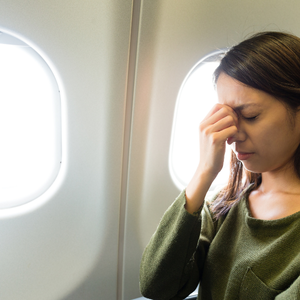 A phobia is an intense and persistent fear of an object, situation, or activity that poses little or no real danger. The fear is usually excessive or unreasonable and can severely impact a person's daily life. People with phobias may avoid certain situations or endure them with intense anxiety, which can lead to significant distress and interfere with normal functioning.
A phobia is an intense and persistent fear of an object, situation, or activity that poses little or no real danger. The fear is usually excessive or unreasonable and can severely impact a person's daily life. People with phobias may avoid certain situations or endure them with intense anxiety, which can lead to significant distress and interfere with normal functioning.
Types of Phobias
There are many different types of phobias, including:
- Specific phobias: This type of phobia involves intense fear of specific objects or situations, such as spiders, heights, or flying.
- Social phobia: This type of phobia involves fear of being embarrassed or judged by others in social situations, such as public speaking or being around people.
- Agoraphobia: This type of phobia involves fear of being in a situation where escape might be difficult, such as being in a crowded place, or being far from home.
- Claustrophobia: This type of phobia involves fear of small or enclosed spaces, such as elevators, or tight spaces.
Causes of Phobias
The exact cause of phobias is not known, but there are several theories about what might trigger them, including:
- Genetics: Some researchers believe that phobias may be inherited and passed down from one generation to the next.
- Trauma: Some phobias may develop after a traumatic event, such as a near-death experience or a traumatic event in childhood.
- Learning: Phobias may also develop as a result of observing the fear of others, or by learning to associate a particular object or situation with fear.
Treatment of Phobias
The most effective treatment for phobias is cognitive-behavioural therapy (CBT). This type of therapy helps people understand and change their thoughts and behaviours related to their phobias. Other treatments include exposure therapy, where people gradually face their fears in a controlled environment, and medication, such as anti-anxiety or anti-depressant drugs.
Living with a Phobia
Living with a phobia can be difficult, but there are steps you can take to help manage your fear, such as:
- Educate yourself about your phobia: Understanding what triggers your fear can help you better manage it.
- Talk to someone: Talking to a trusted friend or family member about your phobia can help you feel less alone and provide support.
- Seek professional help: A mental health professional can provide treatment and support to help you overcome your phobia.
Phobias are a common problem, but they can be treated and managed with the right help and support. If you or someone you know is living with a phobia, reach out for help. With the right treatment and support, it's possible to overcome fear and live a happy, fulfilling life. We offer CBT and Hypnotherapy to help people overcome phobias.
To find out more about our therapy options and to receive a recommendation on which therapy would be most appropriate for you, please click on the button below to book a free consultation.
